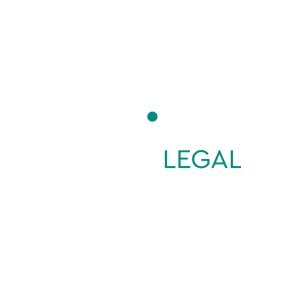Best Energy Regulatory Law Lawyers in Mauritius
Share your needs with us, get contacted by law firms.
Free. Takes 2 min.
Or refine your search by selecting a city:
List of the best lawyers in Mauritius
About Energy Regulatory Law in Mauritius
Energy Regulatory Law in Mauritius encompasses the legal frameworks, policies, and institutions that govern the generation, transmission, distribution, and consumption of energy, particularly electricity. The sector is primarily regulated to ensure energy security, efficient market functioning, consumer protection, promotion of renewable energy, and compliance with environmental standards. The Central Electricity Board (CEB) is the main utility provider, while regulatory authority is vested in the Utility Regulatory Authority (URA). Recent years have seen increased legislative focus on diversifying energy sources, attracting private sector investment, and achieving national sustainability goals.
Why You May Need a Lawyer
Legal expertise in Energy Regulatory Law is essential for navigating the complex statutory requirements and regulatory processes impacting both individuals and businesses. Situations where legal assistance may be necessary include:
- Negotiating Power Purchase Agreements (PPAs) or other energy contracts
- Applying for licenses to operate as an energy provider or developer
- Handling disputes with the CEB, independent power producers, or other stakeholders
- Compliance with renewable energy and emission regulations
- Participating in government energy tenders or bidding processes
- Setting up rooftop solar or other renewable projects
- Ensuring compliance with grid connection and safety standards
- Understanding tariffs, subsidies, and government incentives for energy projects
- Representing consumers in cases involving billing disputes or unfair practices
- Resolving land use and environmental impact matters related to energy projects
Local Laws Overview
Mauritius has a robust legal framework supporting the regulated development of its energy sector. Important statutes and regulatory guidelines include:
- The Utility Regulatory Authority Act 2004, establishing an independent regulator to oversee utilities including electricity
- The Central Electricity Board Act, which mandates the roles and responsibilities of the national utility
- Electricity Act 1939 and related amendments, governing the generation and supply of electricity
- Energy Efficiency Act 2011, encouraging efficient energy use and conservation
- Guidelines and regulations pertaining to renewable energy schemes, such as Small Scale Distributed Generation (SSDG) schemes and the Home Solar Project
- Environmental Protection Act and Planning laws, setting standards for energy projects’ environmental impact
Additionally, the government issues various regulations and policies periodically to align with international commitments and national sustainability strategies. These laws and guidelines regulate tariffs, the connection of independent power producers, grid access, incentives, and licensing requirements. The sector is evolving, with continued legislative reforms to promote private sector participation and sustainable energy development.
Frequently Asked Questions
What does the Utility Regulatory Authority (URA) do?
The URA is responsible for regulating electricity, water, and other utilities to ensure fair competition, protect consumer interests, and promote efficient service delivery.
Can private firms generate and sell electricity in Mauritius?
Yes, independent power producers can participate in the electricity market subject to licensing and compliance with regulatory requirements set by the URA and CEB.
What is the process for connecting a renewable energy project to the grid?
Grid connection for renewable energy projects involves applying to the CEB, following technical standards, securing necessary permits, and entering into a Power Purchase Agreement if selling excess power.
How are energy tariffs determined?
Tariffs are regulated by the URA and set based on cost recovery principles, public consultation, and government policy objectives.
Are there incentives for installing solar panels at home or for businesses?
Yes, the government offers various schemes for solar installations, including SSDG, net metering, and subsidies under specific projects aimed at promoting renewable energy use.
What should I do if I have a billing dispute with my energy provider?
Initially, contact your provider to address the dispute. If not resolved, you may escalate the complaint to the URA or seek legal advice for further action.
Does Energy Regulatory Law cover energy efficiency and conservation?
Yes, the Energy Efficiency Act and related regulations encourage and sometimes mandate specific standards and practices to promote efficient energy use.
Is an environmental impact assessment required for all energy projects?
Most large-scale or potentially impactful energy projects require an Environmental Impact Assessment under the Environmental Protection Act as part of the permitting process.
Can foreign investors participate in Mauritian energy projects?
Yes, foreign investment is permitted, subject to compliance with local laws, licensing, and, sometimes, partnership with local entities.
What types of legal disputes are common in the energy sector?
Disputes may arise over grid access, contract performance, tariff disagreements, land use, environmental compliance, and compensation for landowners or affected communities.
Additional Resources
For those seeking more information or support regarding Energy Regulatory Law in Mauritius, consider the following organizations and resources:
- Utility Regulatory Authority (URA) - The primary regulator of the energy sector
- Central Electricity Board (CEB) - The main electricity utility and key stakeholder in energy projects
- Ministry of Energy and Public Utilities - Responsible for overarching energy policy and strategy
- Mauritius Renewable Energy Agency (MARENA) - Promotes and oversees renewable energy development
- Mauritius Bar Association - For finding legal practitioners experienced in energy law
- Environmental Protection Agency (EPA) - For project-related environmental compliance
Next Steps
If you require legal advice or representation in matters relating to Energy Regulatory Law in Mauritius, you should:
- Identify the specific issue or area of concern, such as licensing, compliance, or dispute resolution
- Gather all relevant documentation, including communications, contracts, and regulatory notices
- Consult with a licensed attorney specializing in energy law
- Seek guidance from relevant authorities, such as the URA or CEB, for preliminary clarification if needed
- Consider using mediation or alternative dispute resolution in the event of conflicts with stakeholders
Engaging an experienced lawyer early in the process can help you understand your rights and obligations, avoid common pitfalls, and navigate regulatory procedures effectively.
Lawzana helps you find the best lawyers and law firms in Mauritius through a curated and pre-screened list of qualified legal professionals. Our platform offers rankings and detailed profiles of attorneys and law firms, allowing you to compare based on practice areas, including Energy Regulatory Law, experience, and client feedback.
Each profile includes a description of the firm's areas of practice, client reviews, team members and partners, year of establishment, spoken languages, office locations, contact information, social media presence, and any published articles or resources. Most firms on our platform speak English and are experienced in both local and international legal matters.
Get a quote from top-rated law firms in Mauritius — quickly, securely, and without unnecessary hassle.
Disclaimer:
The information provided on this page is for general informational purposes only and does not constitute legal advice. While we strive to ensure the accuracy and relevance of the content, legal information may change over time, and interpretations of the law can vary. You should always consult with a qualified legal professional for advice specific to your situation.
We disclaim all liability for actions taken or not taken based on the content of this page. If you believe any information is incorrect or outdated, please contact us, and we will review and update it where appropriate.
Browse energy regulatory law law firms by city in Mauritius
Refine your search by selecting a city.
















